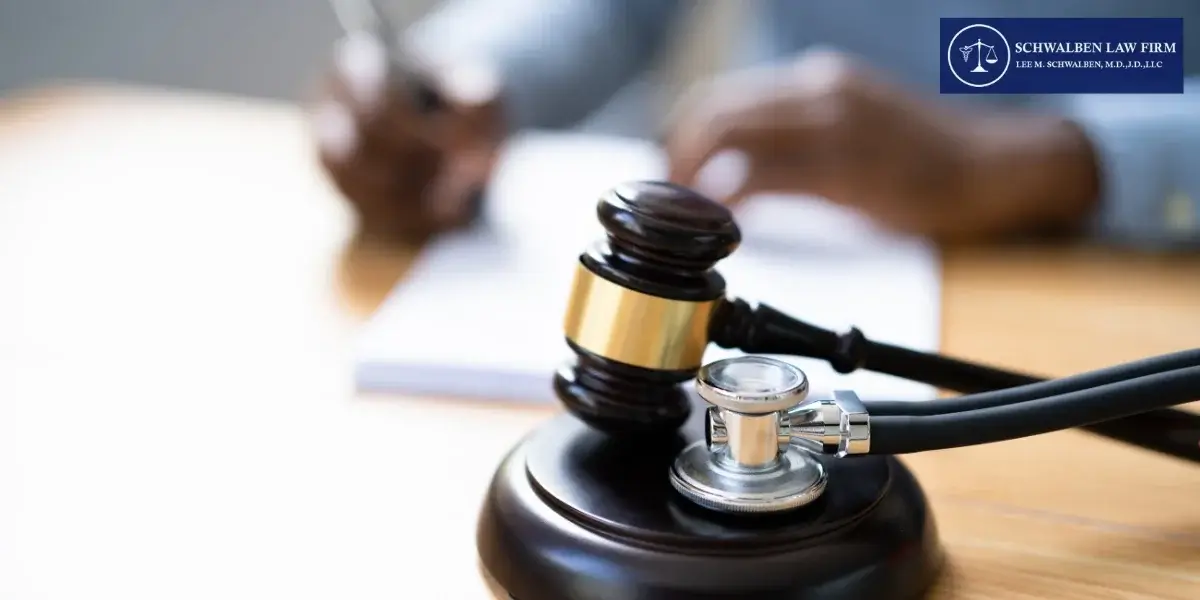Lake Charles Defective Drug and Medical Device Lawyer
Lake Charles Defective Drug and Medical Device Attorney
Pharmaceutical drugs and medical devices are designed to heal individuals who have medical conditions and symptoms. Unfortunately, when prescription drugs and medical devices are improperly designed, manufactured or prescribed, they can cause serious injuries or deaths. This is where a Lake Charles defective drug lawyer comes in.
Drug companies and pharmacists who are responsible for these drug and medical device errors should be held accountable. Seek help from a Lake Charles defective drug and medical device lawyer who has also practiced medicine to learn more about product liability claims for defective drugs and medical devices.

Helping Lake Charles, LA Injury Victims: Lake Charles Defective Drug Lawyer
Lee M. Schwalben, M.D., J.D., LLC, provides representation for victims and families who seek compensation for losses through medical malpractice claims in Lake Charles and throughout the surrounding communities of Louisiana. Attorney Lee Schwalben understands the difficulties you face.
Overview of Defective Drug Law
Defective drug law focuses on the responsibilities of drug manufacturers, testing labs, and healthcare providers to make sure drugs are safe for consumers. These laws protect patients from harmful drugs and penalize companies if the drugs are defective. A drug might be considered defective if it has a dangerous design, is contaminated, or doesn’t have proper warnings for known risks.
Serious injuries may be caused by a variety of mistakes, including:
- Limited medication testing: Failing to properly or thoroughly test medications can lead to unknown side effects, resulting in serious health issues for patients.
- Improperly labeled medications: If a medication is incorrectly labeled, it can result in patients taking the incorrect dosage or medication, which can lead to dangerous reactions.
- Misguided, incomplete or false advertising: Misleading information can lead to patients using drugs unsafely, causing serious harm.
- Improperly filled prescriptions: Errors in how medication is dispensed can lead to patients receiving the wrong drug or dosage, which can cause severe health complications.
Serious side effects can result in catastrophic and fatal injuries to those who take these dangerous drugs or use these defective medical devices. There is also a possibility that drugs may not always be prescribed or tested correctly. Revealing these mistakes may allow you to recover damages that you or your loved one may have suffered.
Before you stop taking any current medications, make sure to talk with your physician.
Your Trusted Medical Malpractice Attorney

Lee M. Schwalben, MD, JD is one of the very few attorneys who is also a licensed physician, bringing a unique combination of legal and medical experience to each case. His dual qualifications allow him to analyze complex medical malpractice cases with deep insight, helping victims seek justice and compensation. With years of experience representing injured patients and families, Lee is committed to protecting your rights and holding negligent medical professionals accountable.
Free Consultation ~ Call Today
Schedule your free initial consultation by calling our Lake Charles office at 337-494-5757. You may also connect with us online by completing a brief form. Your initial consultation is free, and we handle medical malpractice claims on a contingency basis, which means you pay no lawyer fees unless you win the case.
FAQs
Q: What Makes a Drug Defective?
A: What makes a drug defective depends on whether it harms patients. It can harm them based on design flaws, mistakes in manufacturing, or a lack of warnings on the product. A defective drug can have product designs that make it unsafe, even when it is used correctly. If the manufacturer does not warn users about known risks, this failure can also make the drug defective.
Q: Who Can Be Held Liable for a Defective Drug Injury in Lake Charles, LA?
A: The party that can be held liable for a defective drug injury depends on what made the drug defective. The drug’s manufacturer is usually the main party that can be held liable, especially if they did not test the drug or hid safety information. If the labs that tested the drug missed known risks or if the distributors mishandled the drug, they might also be held liable. Accountability depends on each party’s role in creating or distributing the defective drug.
Q: How Can I Prove a Defective Drug Harmed Me in Lake Charles, LA?
A: To prove a defective drug harmed you, you have to directly connect your consumption of the drug to the injury or symptoms that occurred after taking it. Medical records that show the prescription, how you used the drugs, and the timing of when the symptoms appeared can be important evidence. A professional medical testimony can help explain how the drug’s ingredients or side effects contributed to your condition.
Q: Are There Warning Signs That a Drug Might Be Defective?
A: The warning signs that a drug might be defective include a sudden label change to include new side effects or a warning that can result in potential dangers. An FDA recall or safety advisory shows that the drug has raised concerns with regulatory bodies. Media reports or other legal cases can also indicate risks. If you notice unusual symptoms, you should speak to a doctor to make informed choices about your health.
Injured by Medical Negligence? Get the Justice You Deserve
Discuss Your Legal Claim With a Lake Charles Defective Drug Lawyer
Most people trust that their medications will help them instead of harm them. If a company breaks that trust, an experienced attorney can help. Schedule a consultation with Lee M. Schwalben, M.D., J.D., LLC, to take the next step toward recovery.
Lee M. Schwalben, M.D., J.D., LLC Office
Call: +1-337-427-7769


